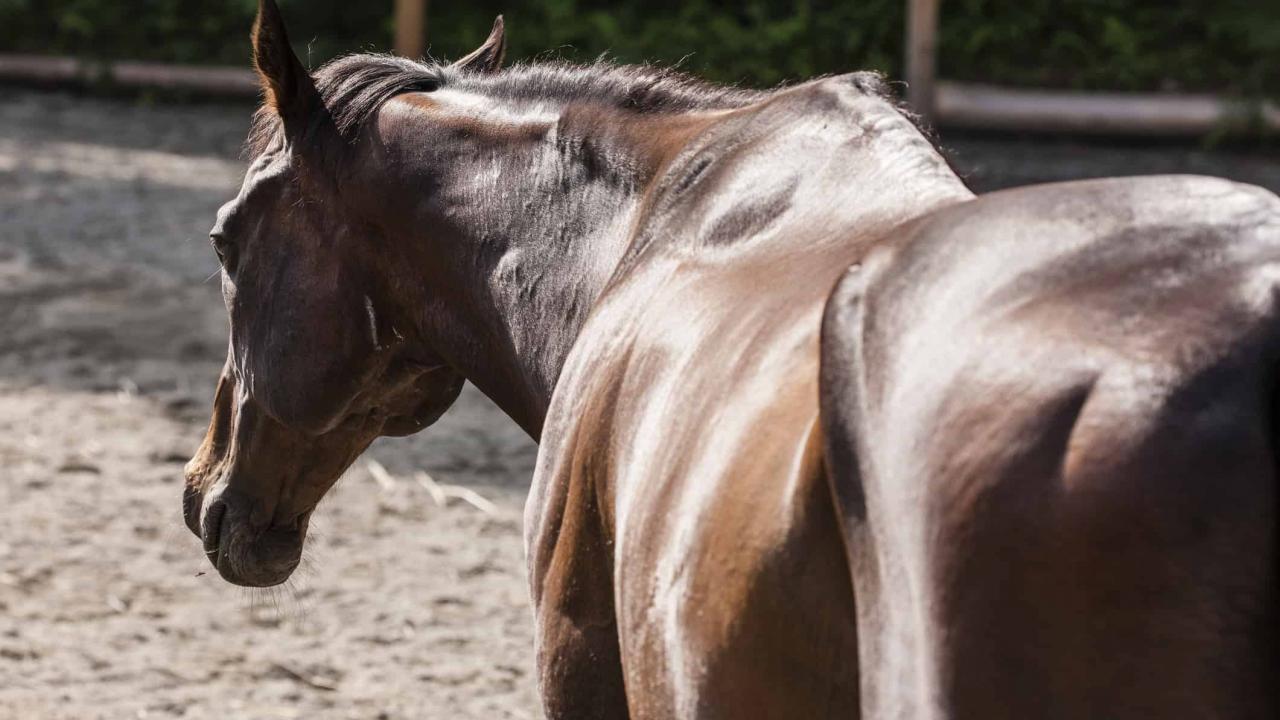
UC Davis Veterinary Medicine Researchers’ Statement Regarding the IMM/MYH1 Genetic Test
This statement is in response to discussions that have arisen due to inaccurate IMM/MYH1 genetic test results by a non-UC Davis affiliated laboratory. UC Davis is issuing this statement because of its relationship to research related to this test, because it has its own patent-pending IMM genetic test, and because the UC Davis Veterinary Genetics Laboratory offers the test as a service.
The accuracy of published research by Drs. Carrie Finno (UC Davis) and Stephanie Valberg (Michigan State University) is not in question. The MYH1 mutation associated with myosin 1 myopathies was identified and validated with multiple methodologies including pyrosequencing, whole-genome sequencing and Sanger sequencing. One primer used for the pyrosequencing matches the region containing the mutation as well as a “pseudogene,” but this pseudogene region was excluded from assessment in their research.
Many different technologies are utilized for genetic testing in animals. Approaches optimized in research settings are typically not ideal for commercial diagnostic tests. This is true for a variety of diseases/conditions in many species. In the case of equine immune-mediated myositis (IMM), the genomic region containing the causative variant is complex and repetitive, making test design challenging. The primers reported in the original publication (Finno et al., 2018) for the IMM variant were optimized in a research setting, where they worked well and resulted in data that substantiated the causative nature of the variant, but they were not designed for commercial testing applications.
Therefore, development of the IMM genetic test was informed by the research but was optimized for genetic testing standards. It is currently patent pending (PCT Publication No. WO2018218049A1) and jointly owned by UC Davis and Michigan State University.
UC Davis Genetic Testing Service: The UC Davis Veterinary Genetics Laboratory (VGL), as a current licensee of this test, has utilized their deep scientific experience and expertise in genetic testing to design a proprietary primer set that allows the specific amplification of the region containing the identified MHYM mutation. Their testing includes validated positive controls (horses confirmed with MYHM by biopsy and other sequencing techniques) and negative controls (horses known to be healthy and free of the mutation by other sequencing techniques) that ensure its accuracy. It is very important for horse owners to submit samples only to laboratories that can offer validated test results.
UC Davis Veterinary Genetics Laboratory: https://www.vgl.ucdavis.edu/services/horse/IMM.php
UC Davis School of Veterinary Medicine Researcher: Carrie J. Finno, DVM, PhD, Diplomate ACVIM; Associate Professor, Population Health and Reproduction and Gregory L. Ferraro Endowed Director, Center for Equine Health
Michigan State University College of Veterinary Medicine Researcher: Stephanie J. Valberg, DVM, PhD, DACVIM, ACVSMR; Mary Anne McPhail Dressage Chair in Equine Sports Medicine and Professor, Large Animal Clinical Sciences
